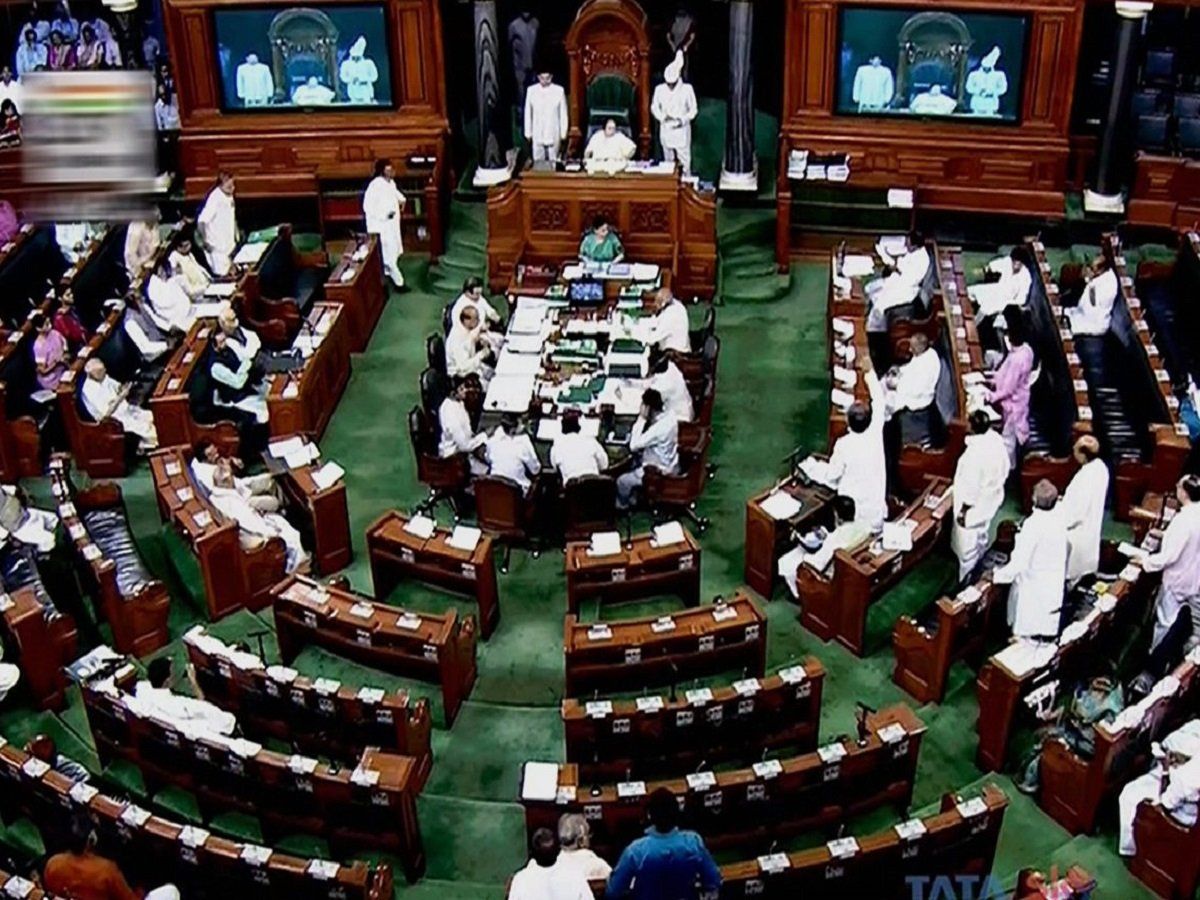NEW DELHI, Aug 3: Lok Sabha on Tuesday passed a bill that seeks to prohibit any agitation and strike by anyone engaged in essential defence services.
Amid protests by some opposition members on the intent of the bill, Minister of State for Defence Ajay Bhatt, who piloted the measure, informed the House that the “biggest thing” is that “we have taken a decision to add a sunset clause in this (bill)”.
A sunset clause gives an expiry date to a law.
Defence Minister Rajnath Singh said he wants to assure the House that after the parliamentary nod and presidential assent, the Act will become effective only when it is invoked.
It may so happen that there is no need to invoke this Act, he said, adding that the law “will be effective for only a year”.
The Essential Defence Services Bill, 2021 seeks to replace an ordinance issued in June. As the minister was speaking, opposition members continued their protests over Pegasus snooping row and farmers’ issues. N K Premachandran (RSP) was of the view that such an important Bill should not be passed amid the din. Congress leader Adhir Ranjan Chowdhury termed the bill as “draconian” and said that it should not be passed when the House is “not in order”. TMC’s Saugata Roy alleged the measure is “anti-labour”. The defence minister said the Bill has been brought keeping in mind the security of the nation and the importance of the legislation should be understood.
“Keeping in mind national security, I request you to pass this Bill,” he told the Lower House.
MoS Defence Bhatt said there was no intention to harm the interests of government employees. He said discussions have been held with the employees’ organisations in a cordial atmosphere.
The bill was later passed by a voice vote amid continuous uproar by opposition members. According to the Statements of Objects and Reasons of the Bill, Indian Ordnance Factories is the oldest and largest industrial set up which functions under the Department of Defence Production of the Ministry of Defence.
The ordnance factories form an integrated base for indigenous production of defence hardware and equipment, with the primary objective of self-reliance in equipping the armed forces with state-of-the-art battlefield equipment. In order to improve autonomy, accountability and efficiency in ordnance supplies, the Government decided to convert the Ordnance Factory Board into one or more one hundred percent government-owned corporate entity or entities to be registered under the provisions of the Companies Act, 2013. Against the decision, the recognised federations of the employees gave a notice for an indefinite strike. The conciliation proceedings initiated by the government at the level of Chief Labour Commissioner failed in the meeting held on June 15. On June 16, the government decided to convert the Ordnance Factory Board into seven Defence Public Sector Undertakings. “In spite of the government’s assurance to take care of the conditions of service of the employees of the Ordnance Factory Board, the recognised federations of the employees have reiterated their intention to go on an indefinite strike from July 26. (PTI)
“Since, it is essential that an uninterrupted supply of ordnance items to the armed forces be maintained for the defence preparedness of the country and the ordnance factories continue to function without any disruptions, especially in view of the prevailing situation on the northern front of the country, it was felt necessary that the government should have power to meet the emergency created by such attempts,” it said
It said the government had to ensure the maintenance of essential defence services in all establishments connected with defence, in public interest or interest of the sovereignty and integrity of India or security of any State or decency or morality.
The Statement of Objects said the ordinance issued on June 30 defines the expressions “essential defence services” and “strike”.
It also empowers the central government to prohibit a strike in essential defence services and provides for disciplinary action, including dismissal, against employees participating in such a strike.
It also provides for penalties for “illegal strikes, instigation thereof and providing for financial aid to such illegal strikes.” (PTI)
Trending Now
E-Paper


